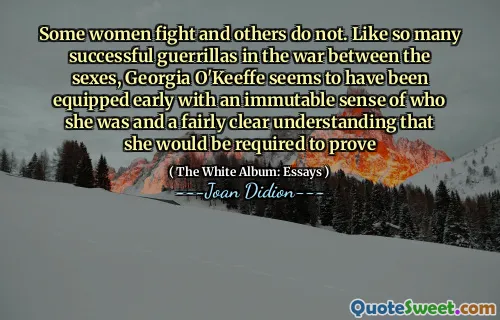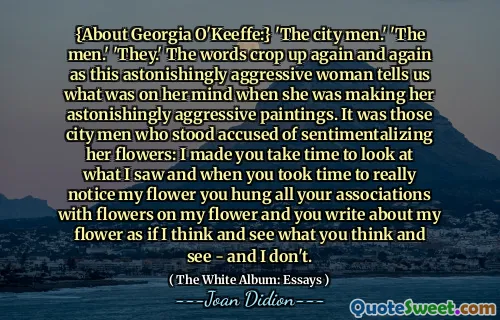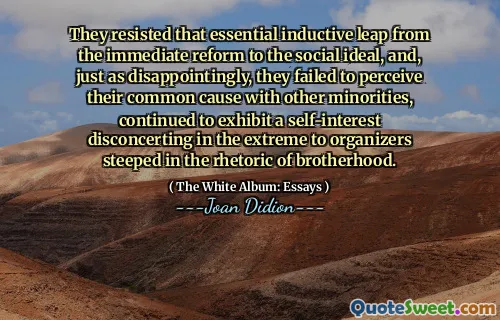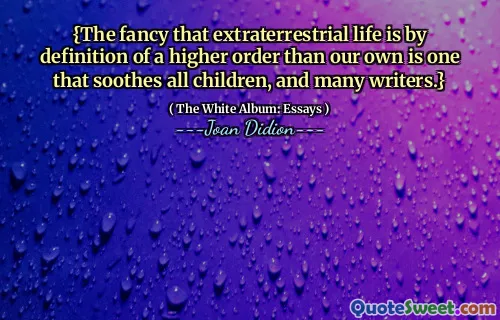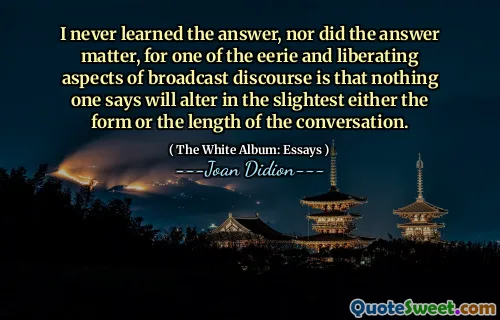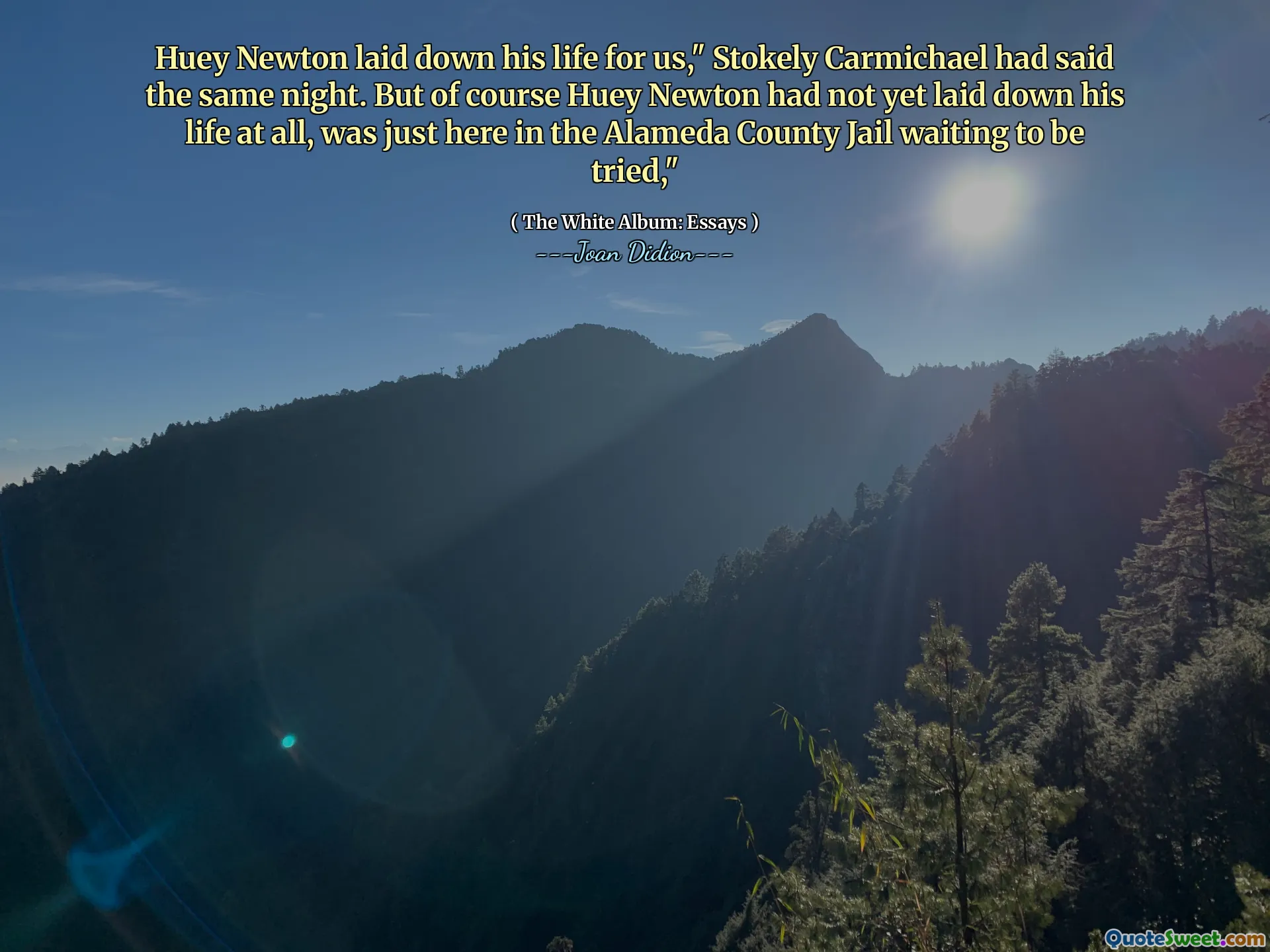
Huey Newton laid down his life for us," Stokely Carmichael had said the same night. But of course Huey Newton had not yet laid down his life at all, was just here in the Alameda County Jail waiting to be tried,"
In Joan Didion's essay collection, "The White Album," she reflects on the profound impact of Huey Newton, co-founder of the Black Panther Party. Stokely Carmichael's statement, expressing that Newton had sacrificed himself for the community, highlights the importance of revolutionary figures in the fight for civil rights. However, the context reveals a tension between the perception of sacrifice and the reality of Newton’s legal struggles as he awaited trial in jail.
This moment captures the complexities of activism and the often premature canonization of leaders who face legal and societal challenges. While Newton's future was uncertain, the reverberations of his work and the sentiments surrounding it were already shaping the discourse on race and justice in America. Didion's writing underscores the weight of expectation placed on individuals who symbolize broader social movements, even as they navigate their own personal crises.
